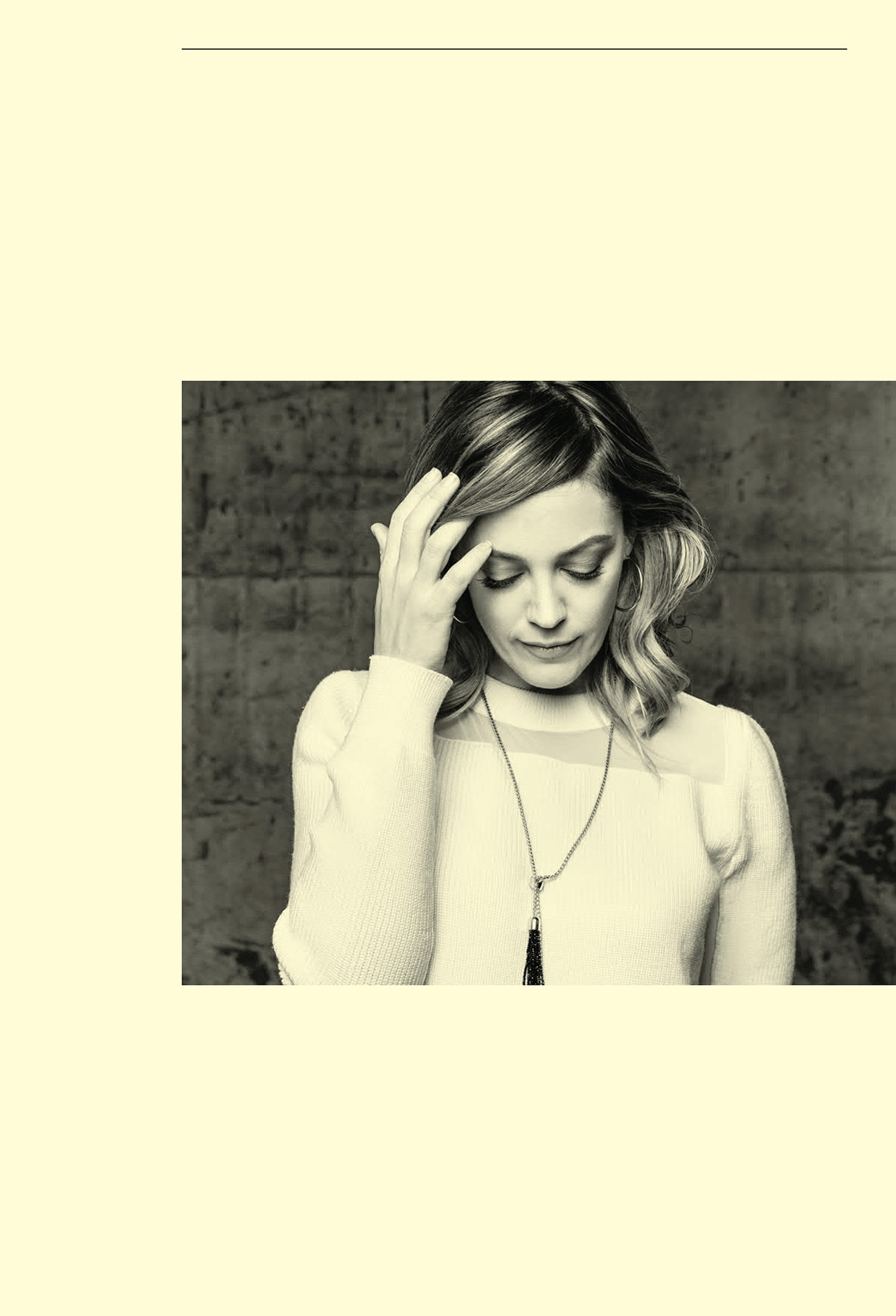
85
Alanis and I both have a big voice, and we both have the capability to flip it around. I feel like there are some moments where I was like, “Oh, I can sing this almost yodel-esque,” which I think is a little bit of an homage to her.
Your character has an opioid addiction, an issue that affects so many American families. How did you prepare to take on such a serious subject?
I did and continue to do a lot of research on that because I just feel like it’s so delicate, and I want to be absolutely as truthful as I can be in telling this story, which is such a real story for so many people in our world. I watched a lot of documentaries. One that really comes to mind was Heroin: Cape Cod, USA. One of the great books I read was Dopesick, by Beth Macy. It’s really just so angering about the epidemic itself.
The show was able to connect us with this man, Dr. Peter Grinspoon, who wrote a book called Free Refills, which is
about his own experience as a doctor becoming addicted to opioids and then losing everything and then working back to get his license again. Now he really works with patients who are dealing with recovery and addiction. He has been a great resource, both his book and then also he just made himself available for phone calls. And there’s another woman, Joanne Peterson, with a nonprofit called Learn to Cope, which is a support group, really, for families and individuals who are dealing with the epidemic of it all. I attended some Narcotics Anonymous meetings. People have been really generous with sharing their personal information about it.
How important was it to you to depict Mary Jane’s descent into pill dependency accurately?
So important. I wanted to educate myself from all angles like, factually, what are we talking about? How many pills a
day are you taking? How much is that costing you? Where are you getting them from? What is your behavior like if you don’t have them? How do you feel if you have them? How do you feel if you don’t have them? Then, also, what is the emotional side of that, but then also what does that look like in a relationship? How is that perceived by those who love you? Because all those questions are useful information as an actor in wanting to really give the scenes authenticity.
You get to sing a brand-new Alanis Morissette song in the show, “Smiling.”
Yeah, it feels really special to be singing a brand-new song that Alanis wrote. Because Alanis is so iconic in her style, I actually had never heard her sing “Smiling” until she did an unplugged concert in December just before we opened. When we were in rehearsals for the first lab, our music director said, “Do you want to hear the demo that Alanis
made?” I said, “I really don’t, because I just don’t want to be tempted to copy her in any way.” Because she’s so iconic, I know that if I hear it, it’ll be in there somehow, and it’ll come out.
Lyrically, “Smiling” is such a great shorthand for who this character is. We see this monotony in some ways that I think is easy for people to fall into. MJ makes breakfast for her kids, she’s celebrating them, and then she’s going to SoulCycle and she’s going to Trader Joe’s and she’s seeing people in the coffee shop. It’s seemingly benign, but peppered with all of her feelings, which include going to the pharmacy to get a refill for a prescription that she’s denied and then resorting to buying drugs on the street. It’s “I have this really great, privileged life,” undercut with true desperation and self-loathing. It is a wild juxtaposition, and as an actor, it is a great challenge.